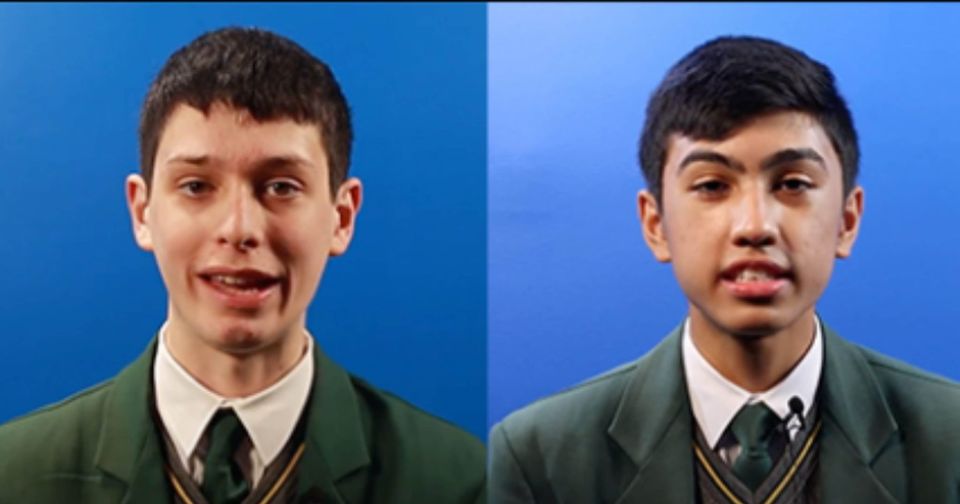
Australia Marist students promote actions on climate change and treatment of refugees at UN
Two students from Parramatta Marist High School addressed the 47th session of the Human Rights Council of the United Nations (UN) this week, calling out Australia’s approach to climate change, and its treatment of refugees. Year 11 students, Zain Chaudry and Brendan Pospischil, spoke by video link, providing their statements as representatives of FMSI.
Chaudry’s statement to the Human Rights Council, on 8 July, reflected on Australia’s human rights record and the outcome of the UPR. He also asked the Australian government to focus on three commitments:
- Fully recognise and leverage Australia’s potential to produce and export renewable energy in order to combat climate change,
- Enact statutory guarantees of equal rights protection for asylum seekers, and ensure they are provided access to Medicare, including the provision of adequate mental health care, and
- Emphasise and systematise extensive school education programs surrounding domestic violence in the next federal domestic violence policy.
Pospischil’s statement focused on the effects of climate change on older people around the world, and the need for the UN to promote age-inclusive climate action. “As the generation who will inherit the planet, my fellow classmates and I continue to be concerned by the accelerating and disproportionate impact that climate change is having on the full and effective enjoyment of human rights by older persons,” Pospischil said.
You can watch both of the students statements online: Brendan Pospischil and Zain Chaudry
The students from Parramatta Marist High School first got involved with FMSI in 2020, after hearing that Australia’s human rights record would be under review in January of this year. They were accompanied and advised by Brother Chris Wills and Marist alumni, Bradley Murphy and Patrick Cooke, who had completed a three-month internship with FMSI in Geneva in late 2019. They were able to link the students with a range of UN Human Rights mechanisms and diplomats from Permanent Missions in Geneva.
Brendan and Zain were part of the group of seven students (alongside their classmates James Chaaya, Chris El Hachem, Diedrik Lubbers, Sebastian Sammut and Alexander Walker) who researched and made
recommendations on the human rights issues that they, the students, considered to be the most important in Australia – climate change, asylum seekers, refugees, and domestic violence.
The students lobbied diplomats from Geneva based Permanent Missions (Belgium, Fiji, Finland, France, Haiti, Iran, Ireland, Peru, Portugal, Sweden, Uruguay and USA), asking them to include their “next generation voice” in proceedings.
During the proceedings in January 2021, the students’ recommendations were accepted by those 12 nations and on 15 occasions those same recommendations were then included in the Universal Periodic Review (UPR) of the Australian government.
UN’s Session of the Human Rights Council
The 47th Regular Session of the Human Rights Council is taking place from 21 June to 15 July 2021 in Geneva. Climate is high on the agenda of this session. The HRC is expected to adopt its annual resolution on human rights and climate change. Climate change is an existential threat for people and the planet. Its harmful effects undermine the full enjoyment and realization of all human rights, disproportionately affecting those who are already in vulnerable situations. This page highlights the environmental-related activities of this session.
